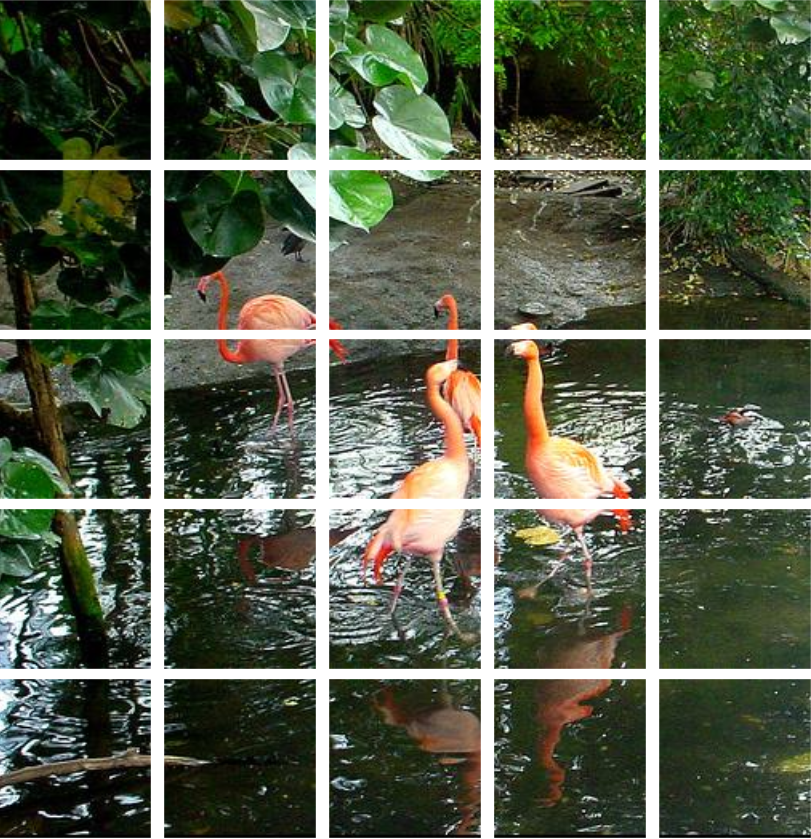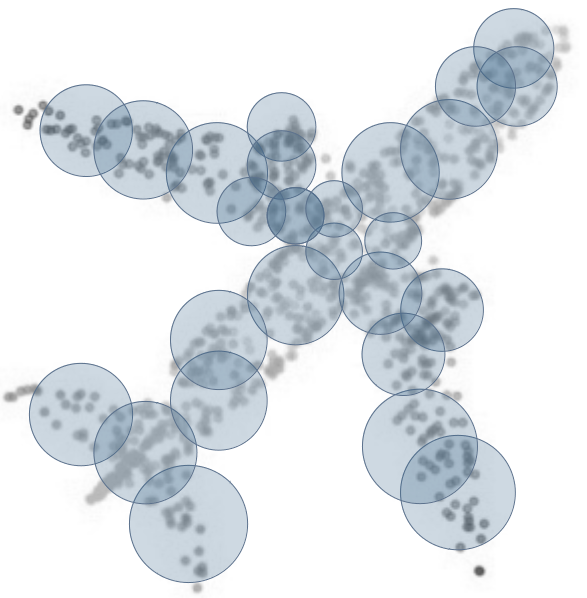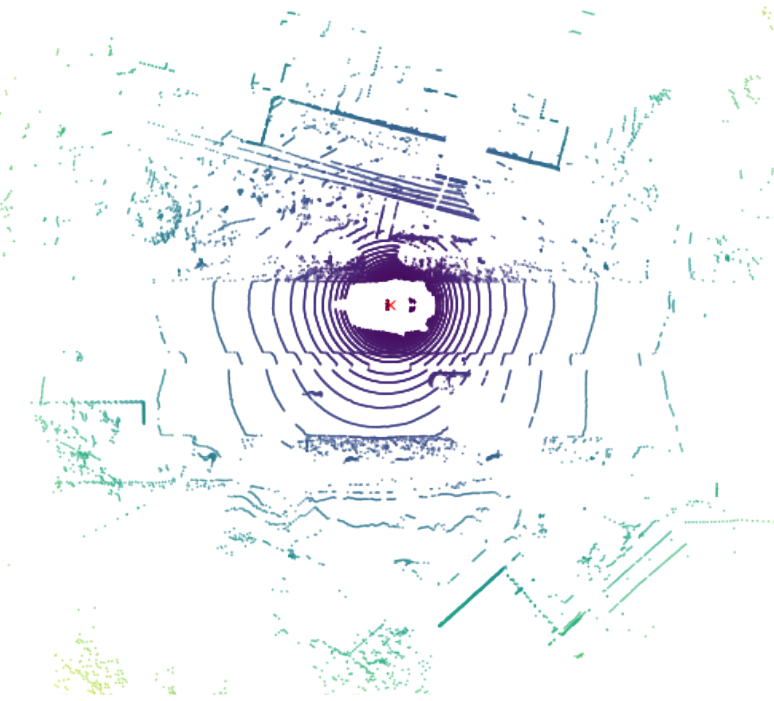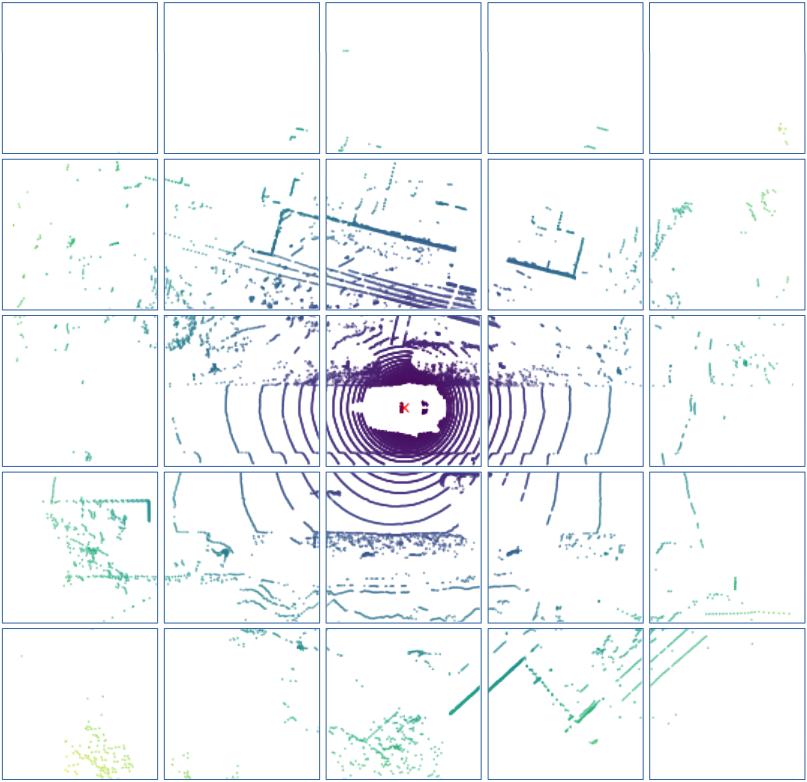Voxel-MAE: Masked Autoencoder for Self-Supervised Pre-Training on Lidar Point Clouds

Core idea
We extend the idea of Masked Autoencoders
Abstract
Masked autoencoding has become a successful pretraining paradigm for Transformer models for text, images, and, recently, point clouds. Raw automotive datasets are suitable candidates for self-supervised pre-training as they generally are cheap to collect compared to annotations for tasks like 3D object detection (OD). However, the development of masked autoencoders for point clouds has focused solely on synthetic and indoor data. Consequently, existing methods have tailored their representations and models toward small and dense point clouds with homogeneous point densities. In this work, we study masked autoencoding for point clouds in an automotive setting, which are sparse and for which the point density can vary drastically among objects in the same scene. To this end, we propose Voxel-MAE, a simple masked autoencoding pre-training scheme designed for voxel representations. We pre-train the backbone of a Transformer-based 3D object detector to reconstruct masked voxels and to distinguish between empty and non-empty voxels. Our method improves the 3D OD performance by 1.75 mAP points and 1.05 NDS on the challenging nuScenes dataset. Further, we show that by pre-training with Voxel-MAE, we require only 40% of the annotated data to outperform a randomly initialized equivalent.
Background
Masked autoencoding has become a successful pretraining paradigm for Transformer models for text






Results
We show that our pre-training outperforms a randomly initialized equivalent by 1.75 mAP points and 1.05 NDS on the challenging nuScenes dataset, and reduce the amount of annotated data required for fine-tuning by 60%. For more details, please refer to our paper.